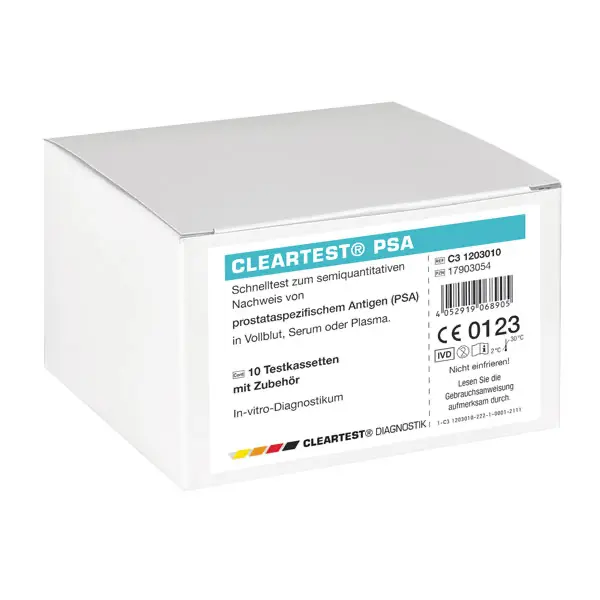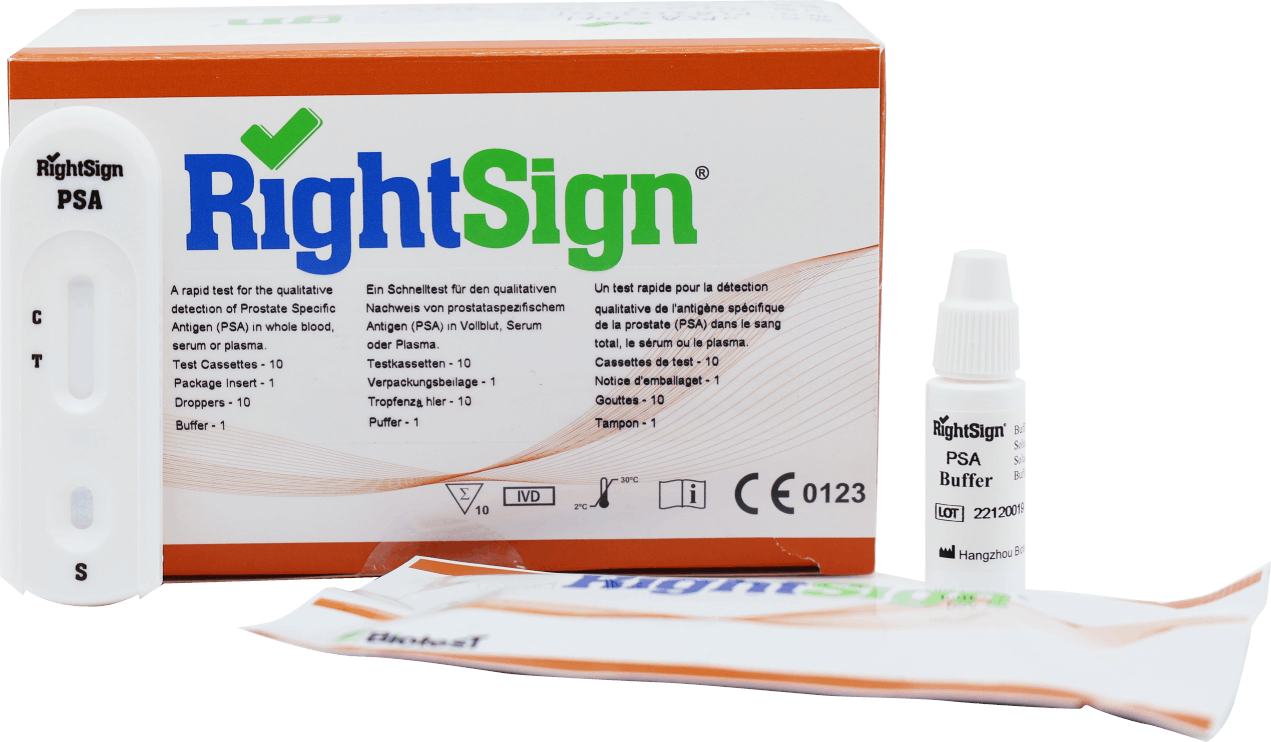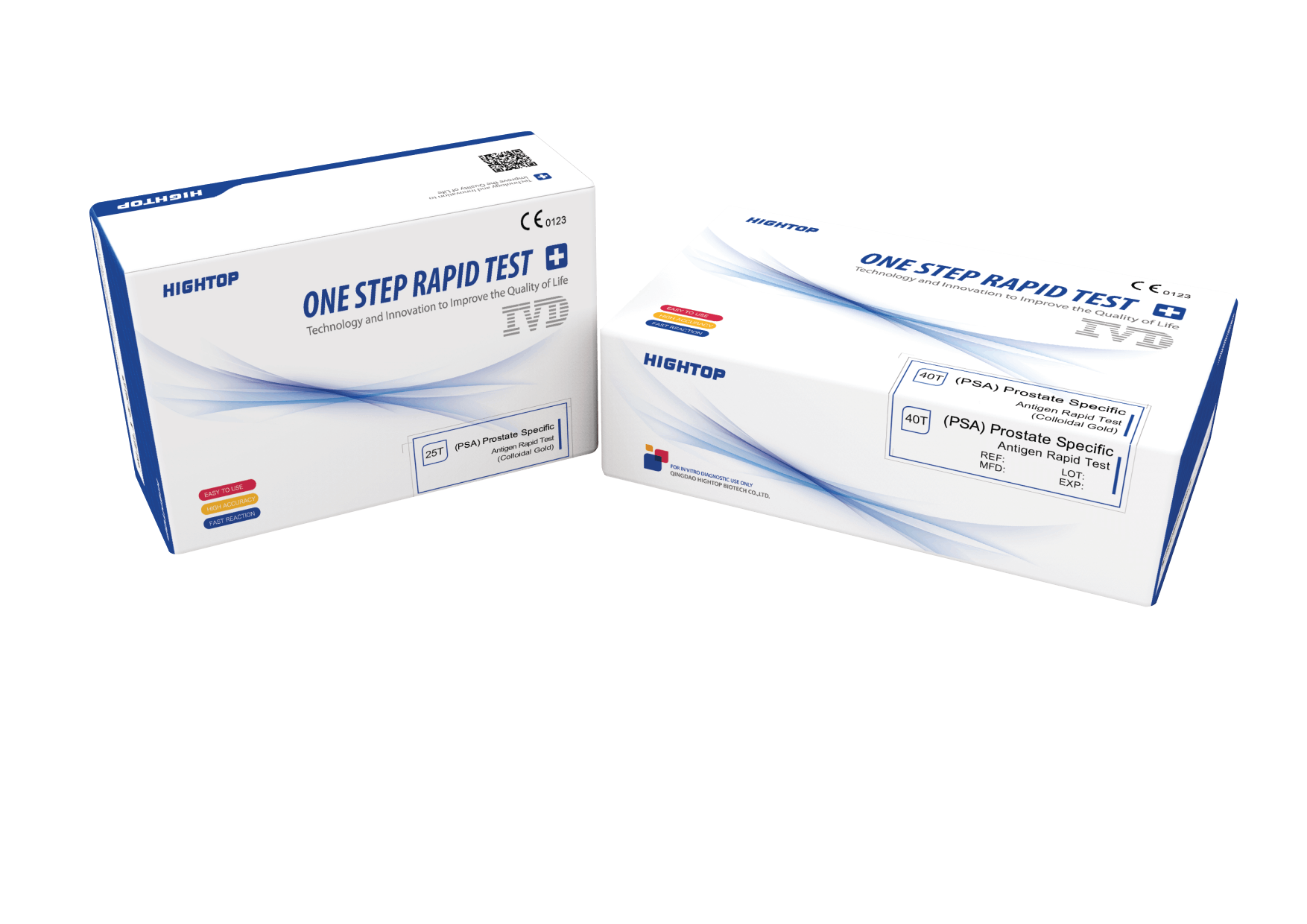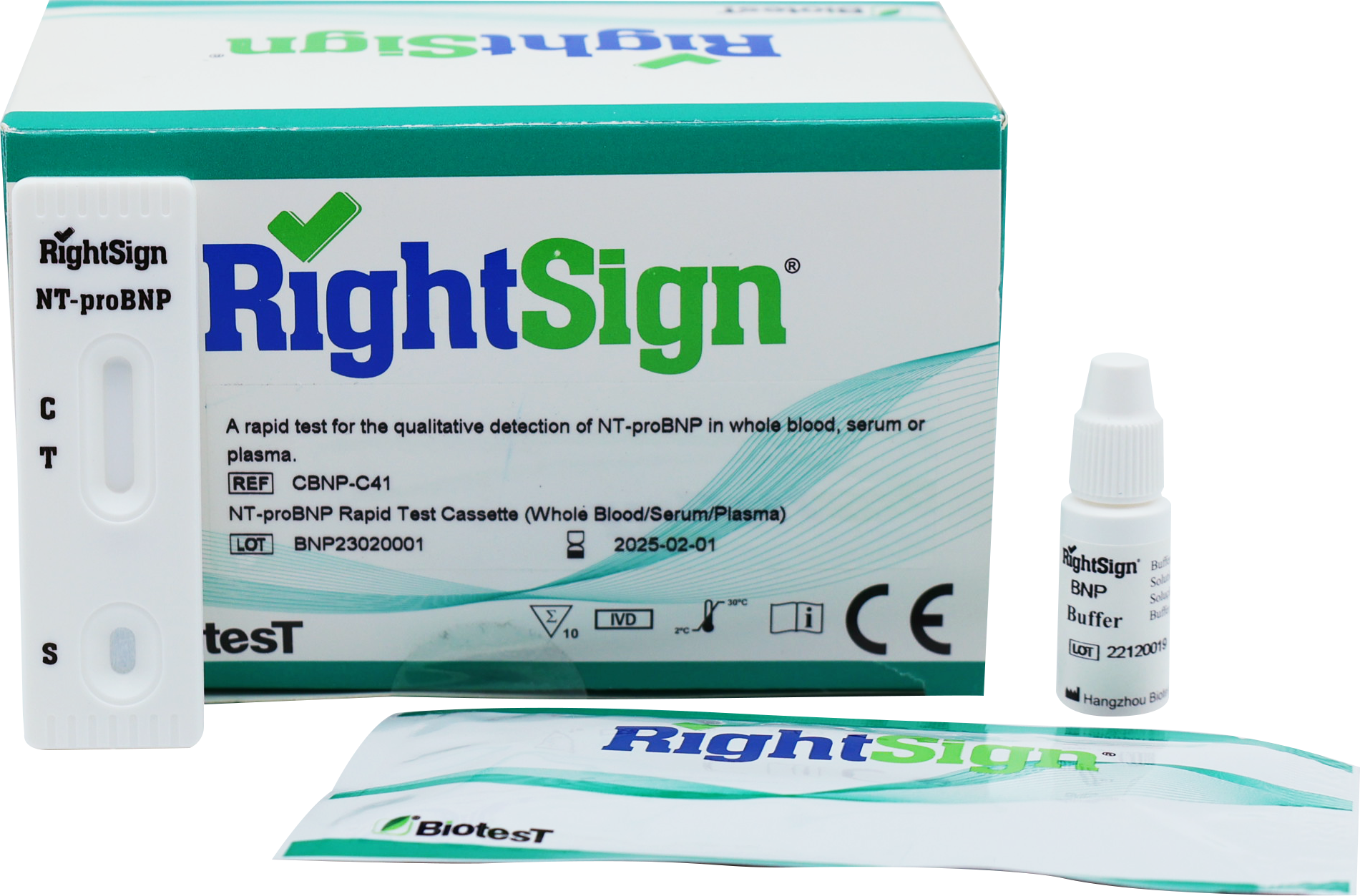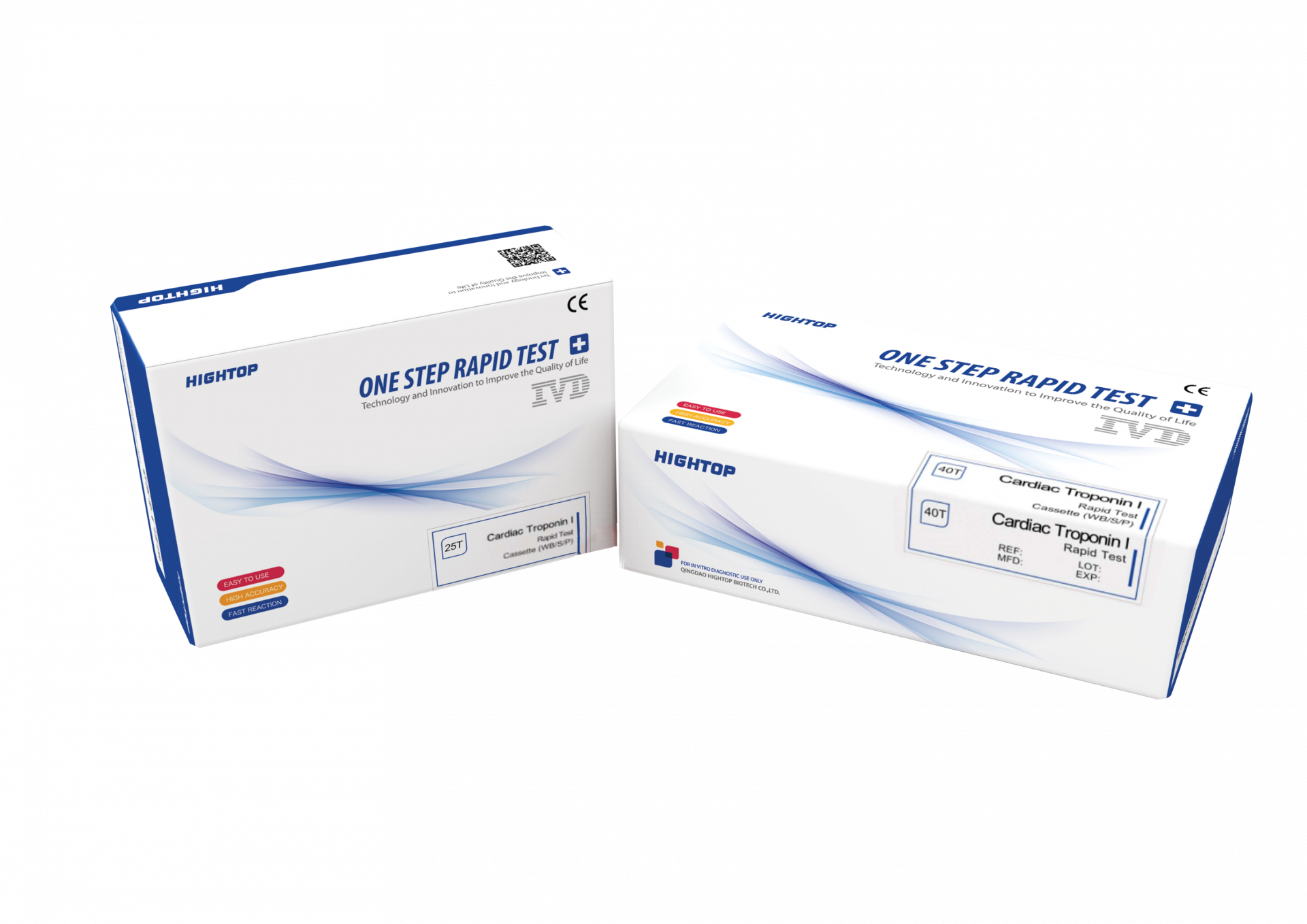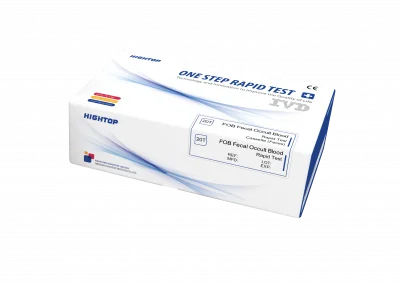PSA Test
PSA Tests are key tools in early prostate cancer detection. Our mission is to deliver the best-of-class PSA Tests to doctors, healthcare providers, clinics, and hospitals. These tests provide reliable insights for monitoring health, enabling early intervention, and reducing mortality risk. By considering individual risk factors and following medical guidelines, these tests empower men with timely insights, enabling early intervention and enhanced control over their health outlook.
Recommended Solutions for Prostate Cancer Screening & cardiovascular tests
We are pleased to continue providing you with D-Dimer, NT-proBNP, and Micro Albumin Rapid Tests so you can maintain a comprehensive approach to cardiovascular diagnostics.
FAQ for PSA Test - Prostate Specific AG Blood Test
The available PSA Test helps in the early detection and monitoring of prostate cancer. Typically, samples are taken via a simple blood draw. The leading methods are laboratory-based analysis or point-of-care testing. Find more details here on sensitivity, specificity, and interpretation of PSA levels, alongside reasons to read the FAQ, such as understanding the test process, preparation, and what results mean.

- What are the different types of PSA Antigen Tests, and how do they vary?
- How do I evaluate a PSA test’s quality?
- How do PSA tests detect prostate cancer?
- Who should consider undergoing PSA testing?
- Accuracy of these tests (sensitivity & specificity)
- What do PSA test results indicate about prostate health?
- Why is the Prostate Specific AG Blood Test crucial for early prostate cancer diagnosis?
- What can cause an abnormal PSA level?
- How does the PSA blood test work in prostate cancer screening programs?
- Do you offer other PSA tests and a ranking of the best available options?
- Where can I find a comprehensive Comparison of PSA Tests?
What are the different types of PSA Antigen Tests, and how do they vary?
PSA Antigen Tests primarily fall into three categories: Total PSA, Free PSA, and Complexed PSA tests. The Total PSA test measures all prostate-specific antigens in the blood, irrespective of whether it's bound to other proteins. The Free PSA test measures the PSA that's not bound to any proteins. The Complexed PSA test measures the antigen bound to other proteins. Each test provides a different perspective on a patient's prostate health, and variations among the test results can help discern between benign conditions and prostate cancer.
Conventional Troponin Test (cTnT or cTnI)
This test measures the combined level of both Free and Complexed PSA in the blood. It's the most common screening test for prostate cancer, providing a baseline indication of prostate health.
High-Sensitivity Troponin Test (hs-cTnT or hs-cTnI)
This test specifically measures the amount of unbound PSA in the blood. It's often used in conjunction with the Total PSA test to help differentiate between prostate cancer and benign prostate conditions.
Point-of-Care Troponin Test (POC Troponin)
This test measures the portion of PSA that is attached to other proteins. It's less commonly used but can provide additional information in ambiguous cases to help guide further testing or treatment decisions.
How do I evaluate a PSA test’s quality?
The quality of a PSA test is commonly evaluated by its sensitivity (ability to correctly identify those with prostate cancer), specificity (ability to correctly identify those without prostate cancer), and consult independent expert studies. A quality test should also provide consistent results and adhere to the guidelines for prostate cancer screening.
How do PSA tests detect prostate cancer?
PSA Antigen Test detects prostate cancer by measuring the level of prostate-specific antigen (PSA), a protein primarily produced by cells in the prostate gland, in the blood. An elevated PSA level may suggest the presence of prostate cancer or other prostate problems, such as an enlarged prostate.
Who should consider undergoing PSA testing?
Men at a higher risk of prostate cancer, such as those with a family history of prostate or breast cancer, those of certain races, or those who get older, should consider regular PSA testing. However, it's important to discuss with a GP the benefits and potential harms of the test.

How do symptoms of prostate cancer relate to PSA test results?
Symptoms of prostate cancer, such as persistent pain or urinary problems, may prompt a PSA test. PSA screening can reveal elevated levels, suggesting the need for further evaluation to diagnose prostate cancer and prevent death from prostate cancer.
What do PSA test results indicate about prostate health?
PSA test results help assess prostate health by measuring the psa level in the blood. Elevated levels might suggest an increased risk of prostate cancer or other issues, such as symptoms of prostate enlargement or infection.
Why is the Prostate Specific AG Blood Test crucial for early prostate cancer diagnosis?
PSA Blood Test is a vital screening tool as this test may help detect prostate cancer at an early stage when treatment for prostate cancer can be most effective. However, a normal PSA level may not entirely rule out prostate cancer, and an abnormal PSA doesn't confirm a diagnosis of prostate cancer. Hence, other tests and factors are also considered.
What can cause an abnormal PSA level?
An abnormal prostate specific antigen level can result from various conditions, including inflammation, infection, or an enlarged prostate. It may indicate symptoms of prostate cancer, requiring further investigation from a healthcare provider.
How does the PSA blood test work in prostate cancer screening programs?
The PSA blood test measures prostate-specific antigen levels in men to screen for prostate cancer. It's a part of the prostate cancer screening programme aimed at identifying prostate health issues early.
Do you offer other PSA tests and a ranking of the best available options?
Yes, we do offer more rapid PSA tests & cardiovascular tests:
FOB
Best Product: Hightop FOB
Quick Test Cassette
Source: Best FOB Tests
CRP
Best Product: RightSign CRP
Semi-quantitative Rapid Test Cassette
Source: Best CRP Tests
Troponin Tests
Best Product: Hightop Cardiac Troponin I
Rapid Test Cassette
Source: Best Troponin Tests
Where can I find a comprehensive Comparison of PSA Tests?
Here, you can find an extensive comparison of PSA Tests. This resource offers in-depth information to guide you in selecting the most appropriate test for evaluating heart muscle injury and diagnosing cardiac incidents.

